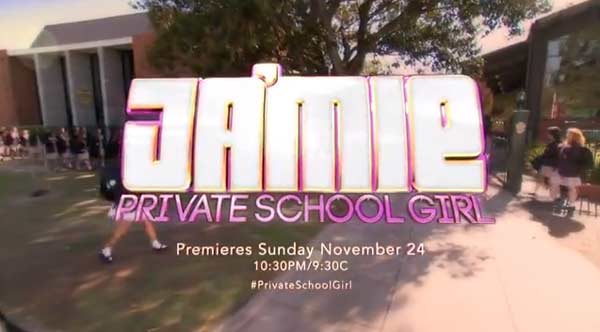Judging from a cursory scroll through the synopsis of the HBO short series “Ja’mie: Private School Girl,” I expected laughs and cleverly placed social commentary from the show, especially because writer and main actor Chris Lilley cosplaying as a spoiled private school girl was bound to elicit cringe-worthy, but funny moments.
Yet when I watched the show, a spinoff of Lilley’s 2008 HBO series “Summer Heights High,” I felt uncomfortable sitting through poorly crafted jokes on gender roles, sexuality, racism, classism, and body image.
The show follows Ja’mie King’s final senior year at the fictional Hillford Girls Grammar School in Sydney, Australia. Ja’mie is a self-proclaimed “Queen Bee,” school captain, and leader of a group of girls who are like the Australian version of “The Plastics” from the movie “Mean Girls.” We see glimpses of the girls ostracizing overweight “borders,” or transfers who used to live in the countryside, and the school’s academically-dominant Asians.
Audience members will probably never want a Ja’mie at their schools as she casually throws degrading comments, but Ja’mie is still a popular character among the youth. In fact, I first found out about the show’s popularity among teenagers on Tumblr. It surprised me that Ja’mie has fans who upload GIFs of the show and caption posts with comments like “Ja’mie is queen” and “I love her.”
Lilley even won the Australian TV Week Logie Award for Most Popular Actor for his role as Ja’mie.
The actor has shown in interviews that he understands Ja’mie, and other politically-incorrect roles he portrays including an African American rapper and a horrible Japanese mother, to be satire. Yet are Lilly’s characters actually successful in making caricatures of our own society’s moral and social decadence?
“Viewers loved to hate her self-involvement, casual racism, vicious lesbophobia, and obsessive body-consciousness. All are well in place for ‘Private School Girl,’” writes Jake Flanagan in a November 2013 piece for the Atlantic.
“Presumably,” he continues, “Lilley poses this array of amusing insecurities and prejudices as a critical device, not face-value comedy–but it’s difficult to say whether the audience can discern the difference.”
In my opinion, the show plays down the seriousness of the issues. For example, it doesn’t really expose anything particularly disgusting with Ja’mie’s banning of “overweight country hillbillies” from a party. It just makes laughs out of an ignorant girl.
![Ja'mie King is cruel and ignorant yet enormously popular. [HBO]](http://www.jstudentboard.com/reporter/wp-content/uploads/2014/10/538665-ade60b04-3c9f-11e3-a826-323d4d841c99-300x168.jpg)
There is a certain artistic value to having the character make a final, over-the-top exit of her high school and find her place in college. Nevertheless, by the end of the show, I barely remembered that the show was supposed to expose the current generation’s shift to ignorant pretension.
Shows like Ja’mie are meant to be funny, and I realized a bit too late that its sole purpose wasn’t to instigate some kind of social change but make jokes about the woes of our society. However, perhaps viewers should work to change our world’s stereotypes, one typecast at a time, to make shows like Ja’mie as a kind of reality-check on how far we are from the extreme and what we can do to make racism and classism things of the past.

